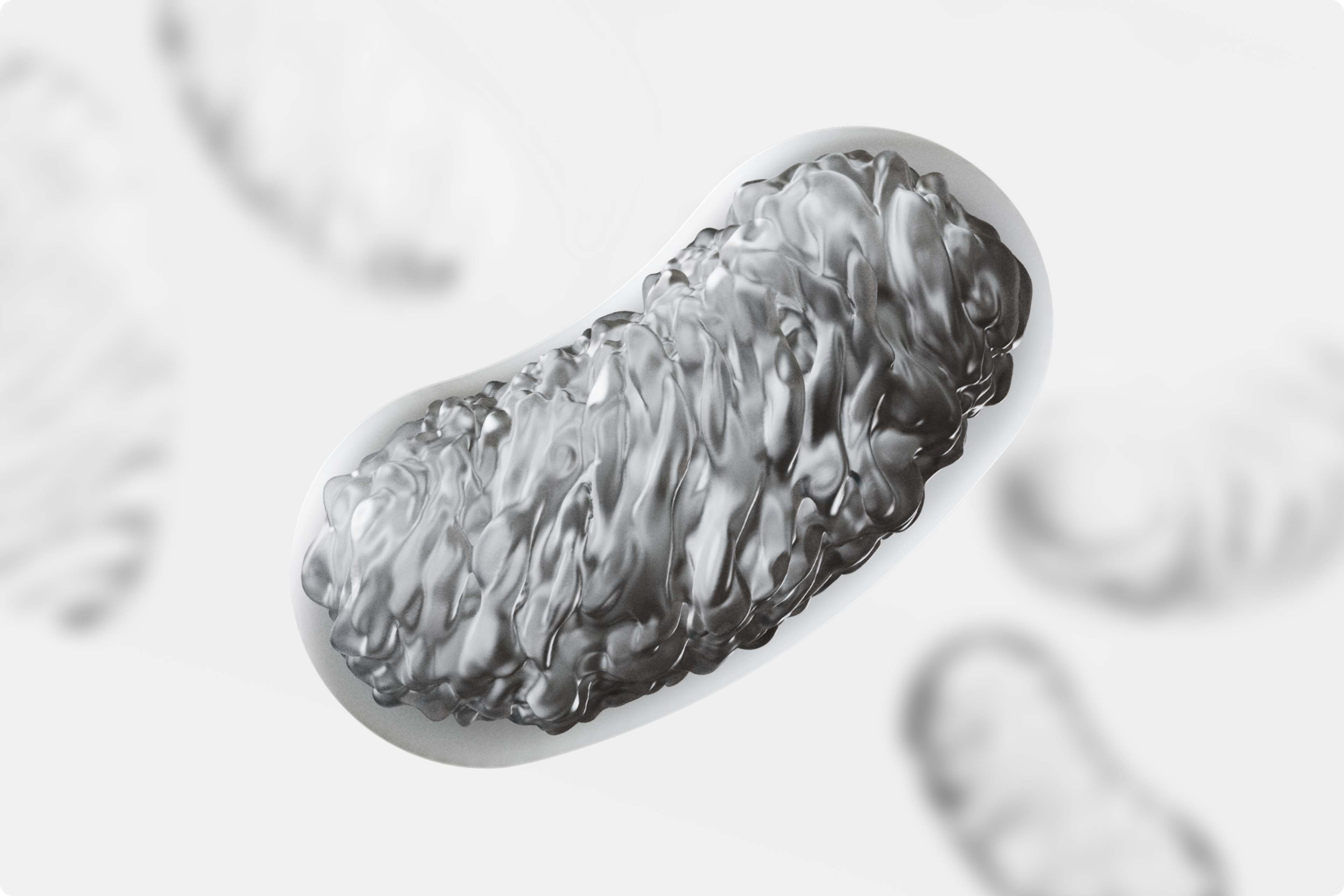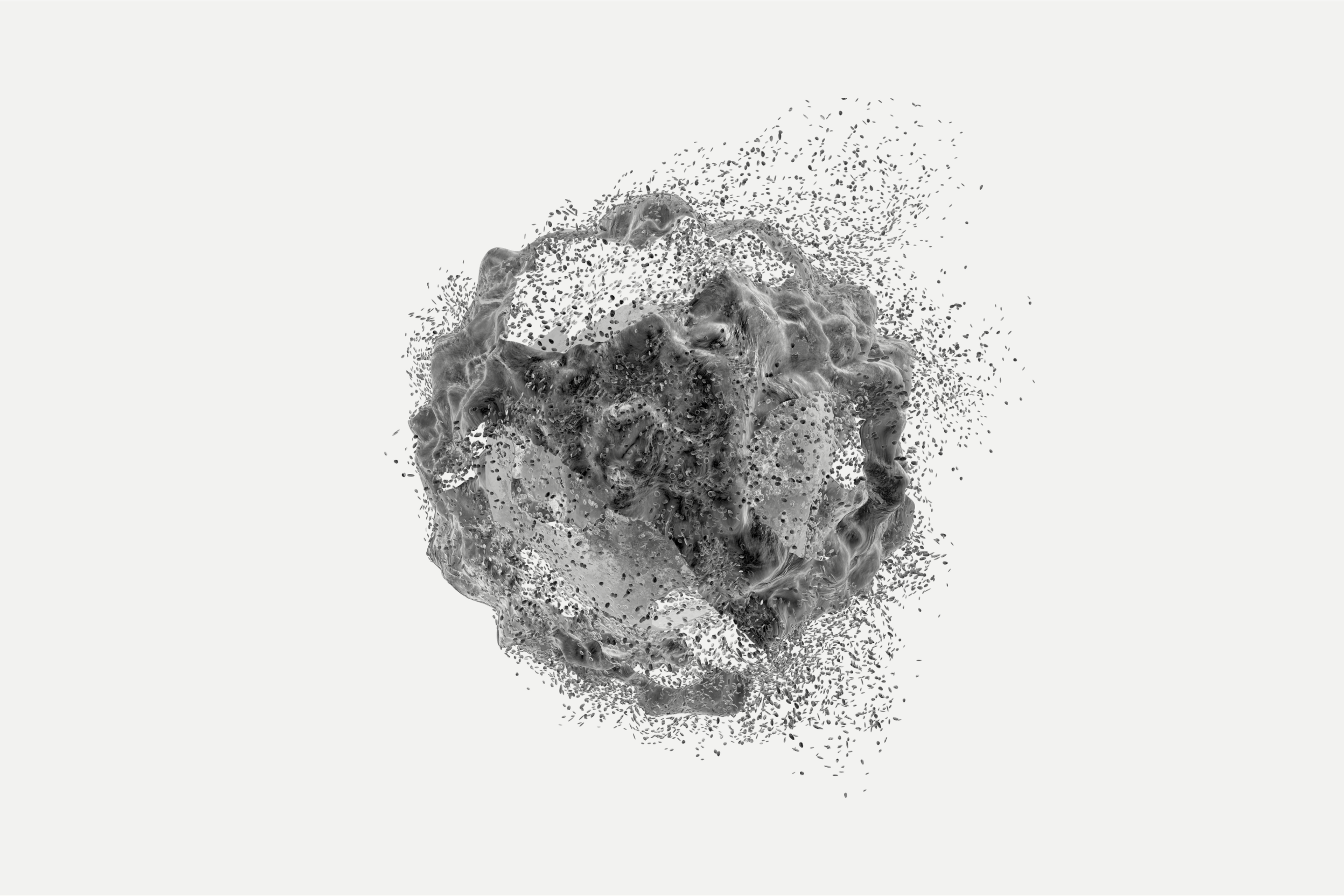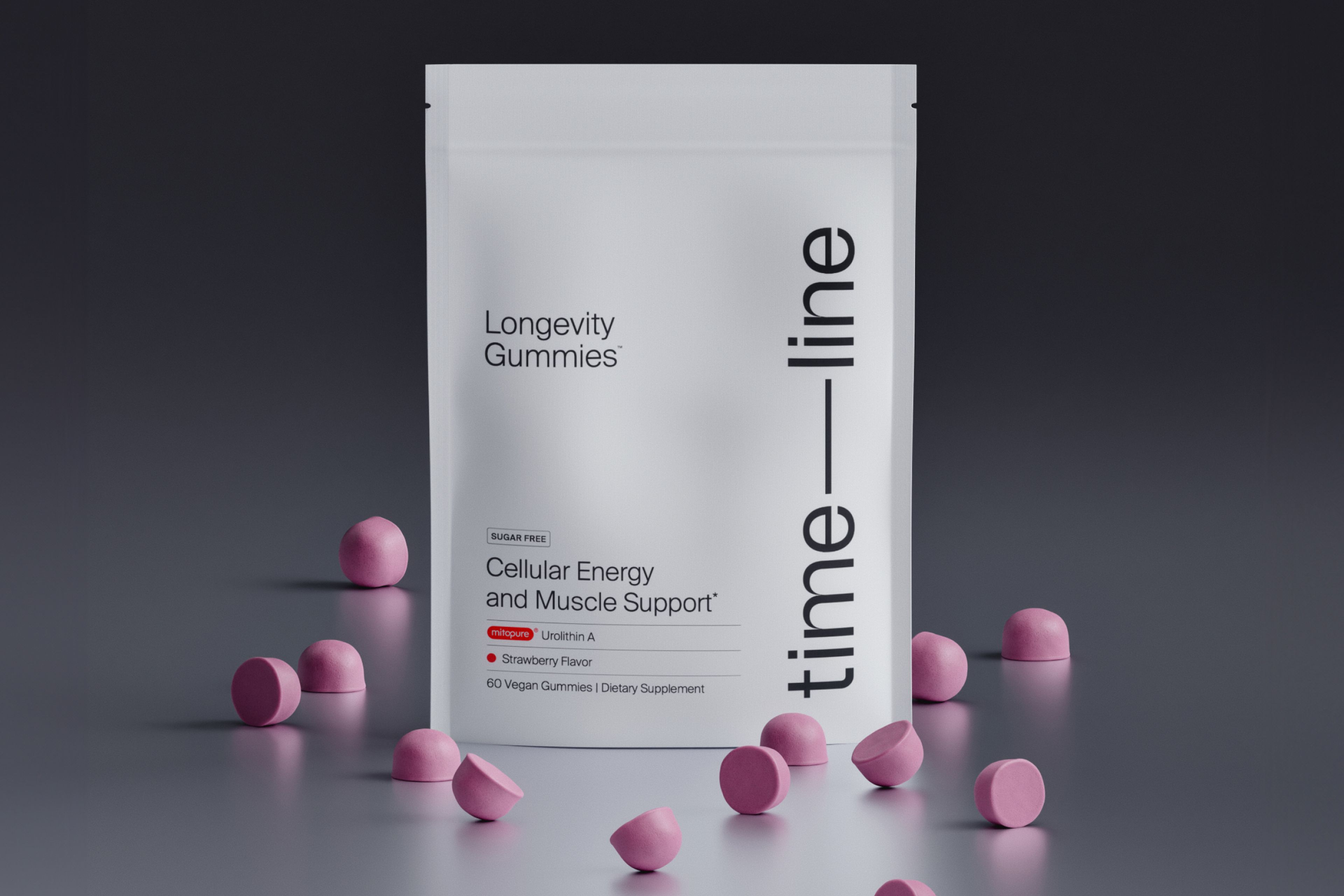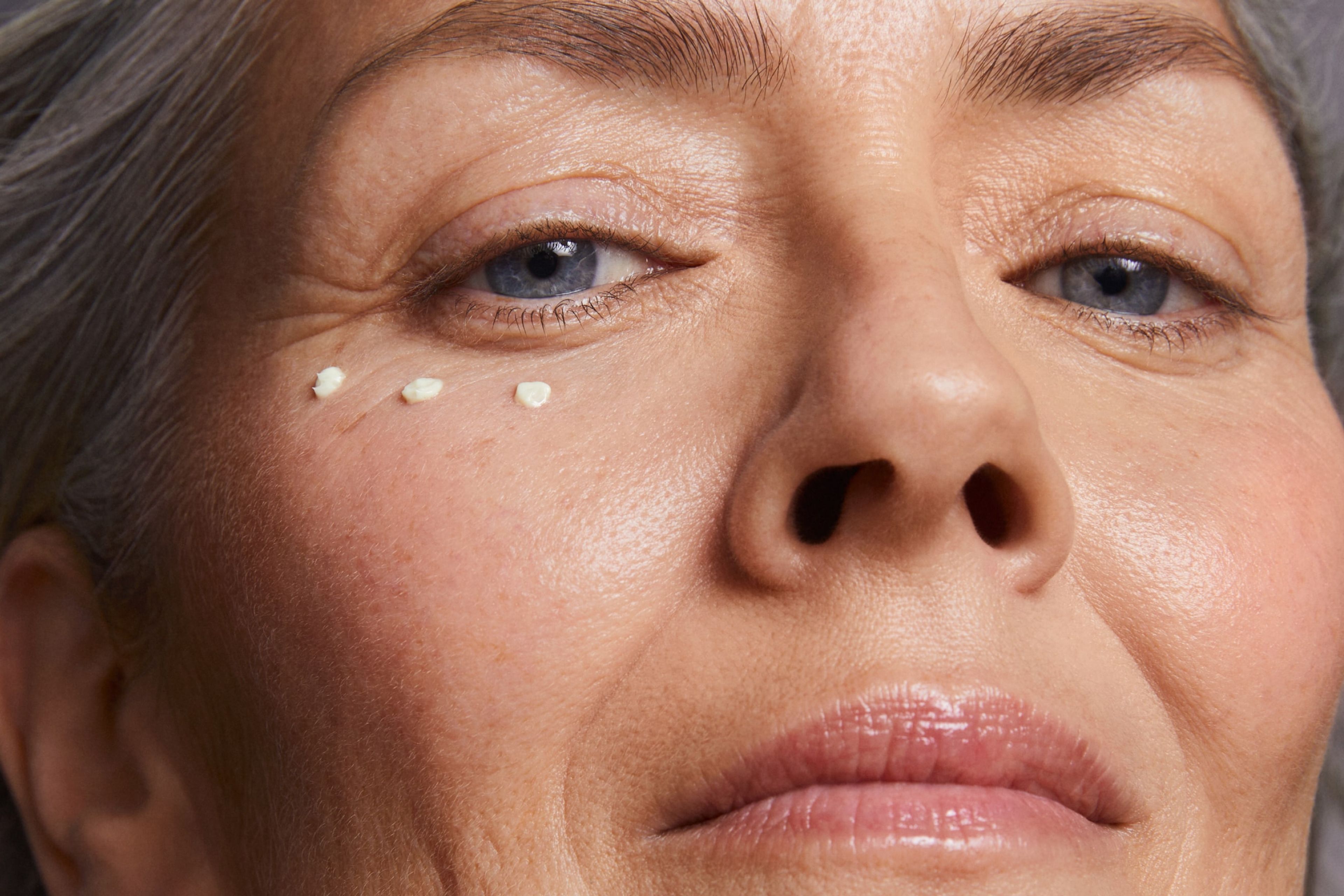How aging skin can impact your overall health
Aging skin can impact overall health. Failing mitochondria are to blame. Mitopure® rejuvenates mitochondria for healthy skin and a healthy body.

What to know
Aging skin may drive premature aging of other organs and impact overall health.
As skin ages, cells experience mitochondrial dysfunction. This leads to the creation of senescent cells and the release of toxic inflammatory proteins which can impact other organs in the body.
These proteins, also known as senescence-associated secretory phenotype (SASP), are at the root of inflammaging, which is associated with cataracts, cancer, type 2 diabetes, osteoarthritis, Parkinson’s, and Alzheimer’s.
Mitopure®, a highly purified form of Urolithin A, energizes aging mitochondria, helping to revitalize cells and protect them against age-related decline.
Timeline Skin Health is powered by Mitopure® to revitalize skin cells, with benefits that may extend to overall health and longevity.
Taking care of your skin is taking care of your health too
Did you know that skin is your body’s largest organ? In addition to being the physical barrier that protects you from external environmental toxins and stressors, skin is an active immune organ at the front line of your body’s defense.
New evidence suggests that as skin ages, it releases inflammatory chemicals that could drive the premature aging of other internal organs. So it turns out that taking care of your skin is not a merely cosmetic pursuit; instead, it is an important part of taking care of your overall health, and may be essential to fending off illness and disease.
From skin aging to inflammaging — scientists think mitochondria are to blame
As we age, our skin is exposed to internal and external aggressors that cause it to degenerate, robbing it of the energy and the components it needs to maintain healthy function. This decline in skin health is marked by the accumulation of fine lines and wrinkles, uneven pigmentation and dark spots, and rough, thinning texture. To learn more, check out our blog What Happens When Skin Ages.

Skin aging is the result of both biological and environmental factors.
Compromised on all fronts, aging skin can no longer repair, restore, or defend itself as it once did. As a result, the skin’s barrier and immune defenses become compromised. Wounds are slower to heal and the body becomes more vulnerable to infection. We also know that photoaged and aging skin is more prone to cancer. And as if that weren’t enough, new research suggests that aging skin can also negatively impact the health of other organs.
Aging skin may drive premature aging of other organs and impact overall health.
As skin ages, cells experience mitochondrial dysfunction. This leads to the creation of senescent cells and the release of toxic inflammatory proteins which can impact other organs in the body.
These proteins, also known as senescence-associated secretory phenotype (SASP), are at the root of inflammaging, which is associated with cataracts, cancer, type 2 diabetes, osteoarthritis, Parkinson’s, and Alzheimer’s.
To better understand this connection, let’s take a step back and look at what happens inside cells as they age. In nearly all body cells, the mitochondria are the energy source for vital functions, including eliminating damaged cells (a process called mitophagy) and cellular renewal.[1]

3D visulization of an aging mitochondrion
As skin ages the mitochondria in the cells wear out. Cellular energy is diminished, compromising healthy functions, including the capacity for renewal. Damaged cells that would normally be eliminated by apoptosis, or programmed cell death, remain. These dysfunctional cells are known as senescent cells. Numerous studies indicate that the accumulation of senescent cells is a direct result of mitochondrial dysfunction and a slowdown in mitophagy.[2] Senescent cells are problematic because they release toxic inflammatory proteins known as senescence-associated secretory phenotypes (SASP). SASP “infect” surrounding cells and tissues, disrupting their healthy function as well.
The buildup of senescent cells in the body and the presence of SASP negatively impact the immune system and cause inflammaging. Inflammaging is chronic low-grade inflammation associated with various serious health conditions, including cataracts, cancer, type 2 diabetes, osteoarthritis, Parkinson’s, and Alzheimer’s.[3]
New research shows that senescent cells in one tissue can damage cells in adjacent tissues, which is why some scientists now believe that skin aging drives whole-body aging.[4] Since the skin covers the entire body, it’s easy to see how senescent cells in your largest organ can negatively impact overall health.

3D visualization of a senescent cell, releasing inflammatory chemicals
Beyond beauty — taking care of your skin is taking care of your health.
What can be done to improve your skin health and prevent senescent cells from accumulating?
As mentioned, mitochondrial dysfunction and a slowdown in mitophagy are closely linked with the creation of senescent cells. As a result, the key to preventing aging skin from negatively impacting other organs is to maintain good mitochondrial health.
When applied topically, Mitopure® is clinically proven to stimulate mitophagy in the epidermis and to improve skin’s resistance to both intrinsic and extrinsic aging factors. Science now suggests that supporting skin cellular health by re-energizing the mitochondria could potentially delay senescence and its harmful effects.
So remember, taking care of your skin is not just about reducing wrinkles and looking younger – it is an important part of supporting your overall health and longevity.

The Day Cream
4.6 · 91 reviews
Redensifies the skin's appearance. Powered by Mitopure®

The Night Cream
4.7 · 129 reviews
Regenerates the skin's appearance. Powered by Mitopure®

The Serum
Bestseller4.6 · 129 reviews
Lifts the skin. Powered by Mitopure®
References
- ↑
Ma K, Chen G, Li W, Kepp O, Zhu Y, Chen Q. Mitophagy, Mitochondrial Homeostasis, and Cell Fate. Front Cell Dev Biol. 2020;8:467. Published 2020 Jun 24. doi:10.3389/fcell.2020.00467
- ↑
Martini H, Passos JF. Cellular senescence: all roads lead to mitochondria. FEBS J. 2023;290(5):1186- 1202.
- ↑
Lawton, G. The radical new theory that wrinkles actually cause ageing. March 28, 2023. NewScientist website. https://www.newscientist.com/article/2366093-the-radical-new-theory-that-wrinkles-actually- cause-ageing/ Accessed May 2, 2023.
- ↑
Dodig S, Čepelak I, Pavić I. Hallmarks of senescence and aging. Biochem Med (Zagreb). 2019;29(3):030501. doi:10.11613/BM.2019.030501

•
Skincare•
Inside Timeline’s Lab: Meet Mitochondria Expert Julie Faitg

•








